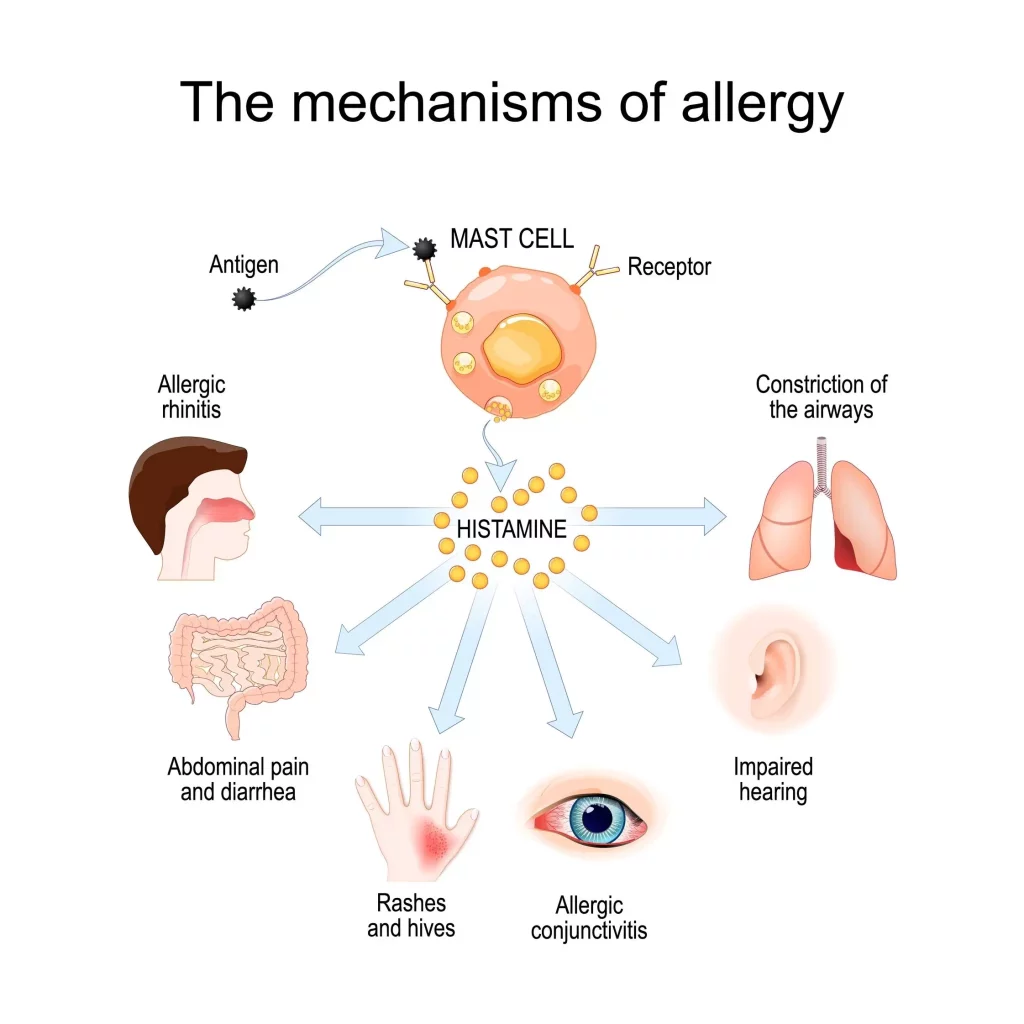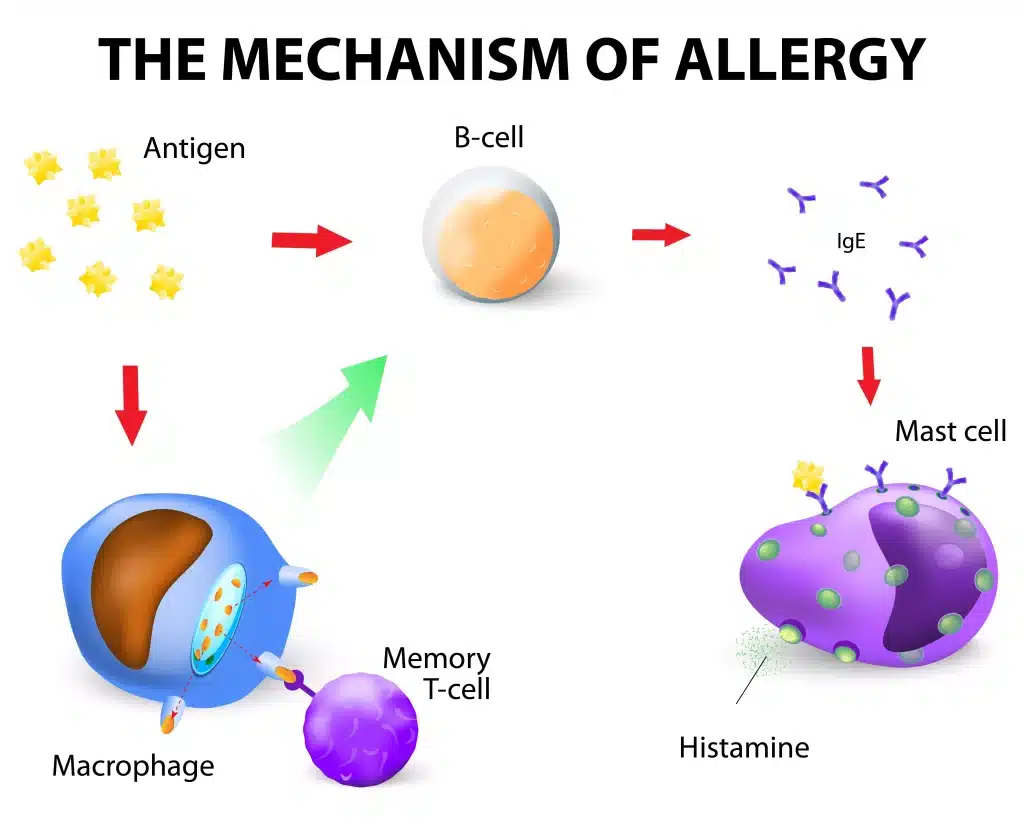Allergic reactions are exaggerated immune system responses to an allergen that should not normally cause problems (pollen, animal hair, dust mites, etc.).
An allergy develops in two phases: sensitization and inflammatory reaction.
Sensitization: the allergen activates the immune system, producing IgE antibodies that bind to cells. No symptoms are felt during this phase
Reaction: on renewed contact, the allergen stimulates mast cells (carriers of these IgE antibodies), which release histamine, leading to the inflammatory reaction and disorders characteristic of allergy.

Allergies are on the increase due to a variety of environmental factors, including climate change, which means longer pollen seasons and higher pollen counts. Pollution and changes in the indoor environment also contribute. Other factors such as diet, medication and improved hygiene are also being studied.








